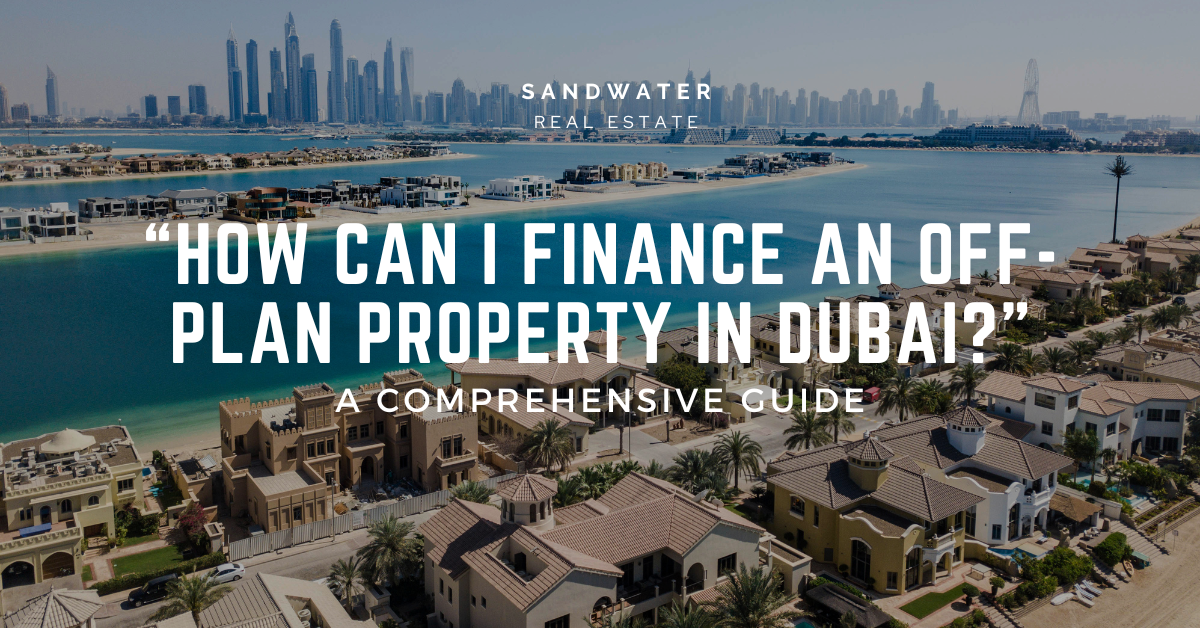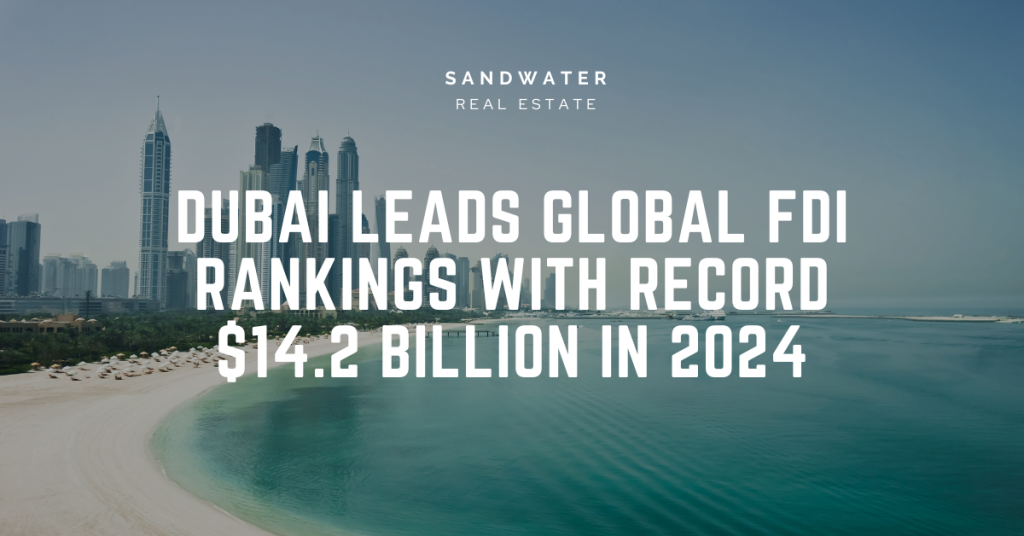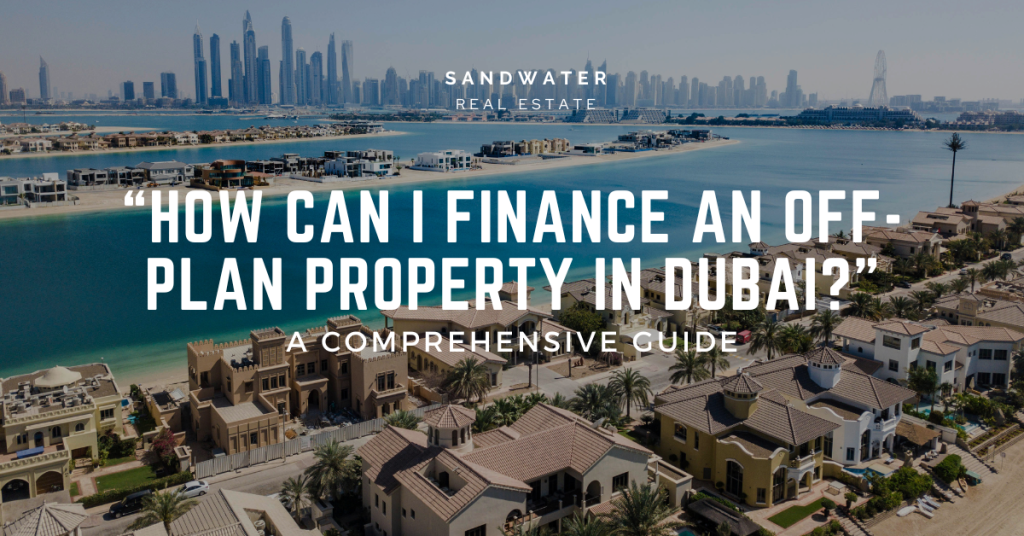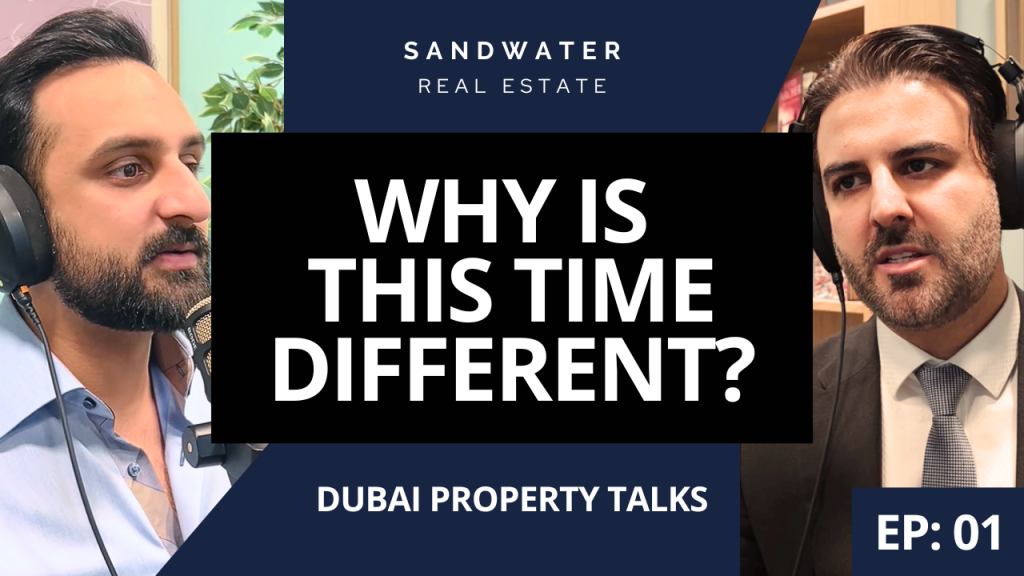Buying property in Dubai can be a lucrative investment, whether you opt for off-plan or ready properties. Understanding the differences between these options is crucial for securing an optimal financing solution.
Investing in Dubai’s real estate, whether in ready or off-plan properties, offers significant opportunities for capital gains or finding a primary or secondary home. When buying a property, banks will assess the property’s sales and rental value. However, securing financing for an off-plan property requires a more structured approach, as banks typically do not disburse funds for properties under construction. Once the property is ready for handover, it transitions from an “off-plan” to a “ready” property, making it eligible for mortgage financing. This guide outlines the key steps to obtaining property finance, including research, securing funding, and understanding payment plans and contract terms.
Conduct Comprehensive Research & Due Diligence
Before investing in an off-plan property, thoroughly research the developer’s reputation, financial standing, track record, and the payment plan for the specific project you are investing in. Choosing a reputable developer minimizes risks and enhances your investment’s long-term value. Additionally, analyse Dubai’s real estate market trends, potential capital appreciation, and future infrastructure developments. An informed decision increases the likelihood of securing a property that delivers strong returns and is eligible for a mortgage upon completion.
Secure Financing from a Bank
Partnering with a reputable bank is essential for financing a property in Dubai. Many local and international banks offer tailored mortgage solutions with competitive interest rates and flexible repayment terms. For off-plan properties, you can get pre-approval during the construction period, but banks will not disburse the mortgage until the property is ready for handover. As an exception, in rare cases, some banks might disburse the mortgage if the project has reached 70-90% of construction and is with a reputable developer like Emaar or Dubai Holding.
Leading banks offering mortgage solutions in Dubai include First Abu Dhabi Bank (FAB), Mashreq Bank, Emirates NBD, Abu Dhabi Commercial Bank (ADCB), Dubai Islamic Bank (DIB), and RAKBANK. These institutions provide a range of competitive financing options for both residents and international investors.
For a comprehensive step-by-step guide on securing a mortgage in Dubai, refer to this article: How to Get a Mortgage in Dubai: A Step-by-Step Guide.
Review and compare mortgage terms, including interest rates, loan duration, and any additional fees, to ensure you secure a competitive financing plan that aligns with your investment goals.
Understand the Payment Plan & Contract Terms
Understanding the payment structure and contract terms is fundamental for a seamless investment experience. Off-plan properties in Dubai typically follow structured payment plans, including a down payment, instalment schedules, and post-handover payment options.
The main difference between financing an off-plan property versus a ready property lies in the required equity contribution according to the developer’s payment plan and the Loan-to-Value (LTV) ratio offered by banks. Banks typically offer 50-80% LTV, meaning buyers can finance up to 80% of the property’s purchase price through a mortgage, while the remaining 20-50% must be covered as equity.
For an off-plan property with a 20/80 payment plan (20% paid during construction, 80% paid on handover), buyers can obtain up to 80% finance from the bank upon handover since the equity paid during the off-plan construction period is a maximum of 20%. However, finding an off-plan project with a 20/80 payment plan is extremely rare in the current market, especially with reputable developers. The normal payment plans range from 40/60 to 70/30. For a property with an 80/20 payment plan (80% paid during construction, 20% paid on handover), buyers will be limited to acquiring only 20% finance from the bank, locking up 80% equity in the property. It is also to be noted that the Dubai Land Department fee to register a property in your name is 4% of the total purchase price.
Most banks provide up to 80% LTV for UAE residents and up to 60% LTV for foreigners. It should be noted that residents can normally only get up to 80% LTV for their primary property and only up to 60% for any secondary property.
It is also advised to carefully review key contract terms related to the payment plan, project completion timelines, construction quality standards, and penalties for late payments or project delays. Being aware of these terms helps prevent disputes and ensures transparency.
Interest Rates and Loan Terms
As of early 2025, mortgage interest rates in Dubai range between 3.9% and 4.75% per annum for fixed-rate mortgages, with variable rates depending on the lender and market conditions. The maximum loan tenure extends up to 25 years, offering long-term financing solutions for investors.
For international investors, banks like Emirates NBD offer financing up to 80% of the property value, with loan amounts reaching AED 25 million and flexible repayment options. These favourable lending conditions make Dubai an attractive destination for real estate investment in 2025.
Given the evolving market dynamics, investors are encouraged to consult directly with banks or financial advisors for the latest mortgage rates and tailored financing solutions.
Conclusion: A Secure Path to Property Financing
Securing a mortgage on an off-plan property in Dubai requires careful planning and informed decision-making. Understanding the different payment plans developers offer is key. By conducting thorough due diligence, selecting a trusted financial partner, and fully understanding contractual obligations, investors can minimize risks and maximize returns. With Dubai’s dynamic real estate market offering exceptional growth potential, a structured approach to off-plan financing can lead to a successful and profitable investment.
Sources
https://www.bankfab.com/en-ae/personal/mortgages/mortgage-loan-for-residences-investment-in-uae
https://tradingeconomics.com/united-arab-emirates/interest-rate
https://www.emiratesnbd.com/en/loans/home-loans/home-loans-for-expatriates?utm_source=chatgpt.com
https://gulftime.ae/interest-rate-cuts-to-boost-uae-real-estate-sector-in-2025/
https://rapoport.hms.harvard.edu/2025/01/20/faq-on-the-mortgage-and-home-loan-pricing/
https://rulebook.centralbank.ae/en/rulebook/regulations-regarding-mortgage-loans







